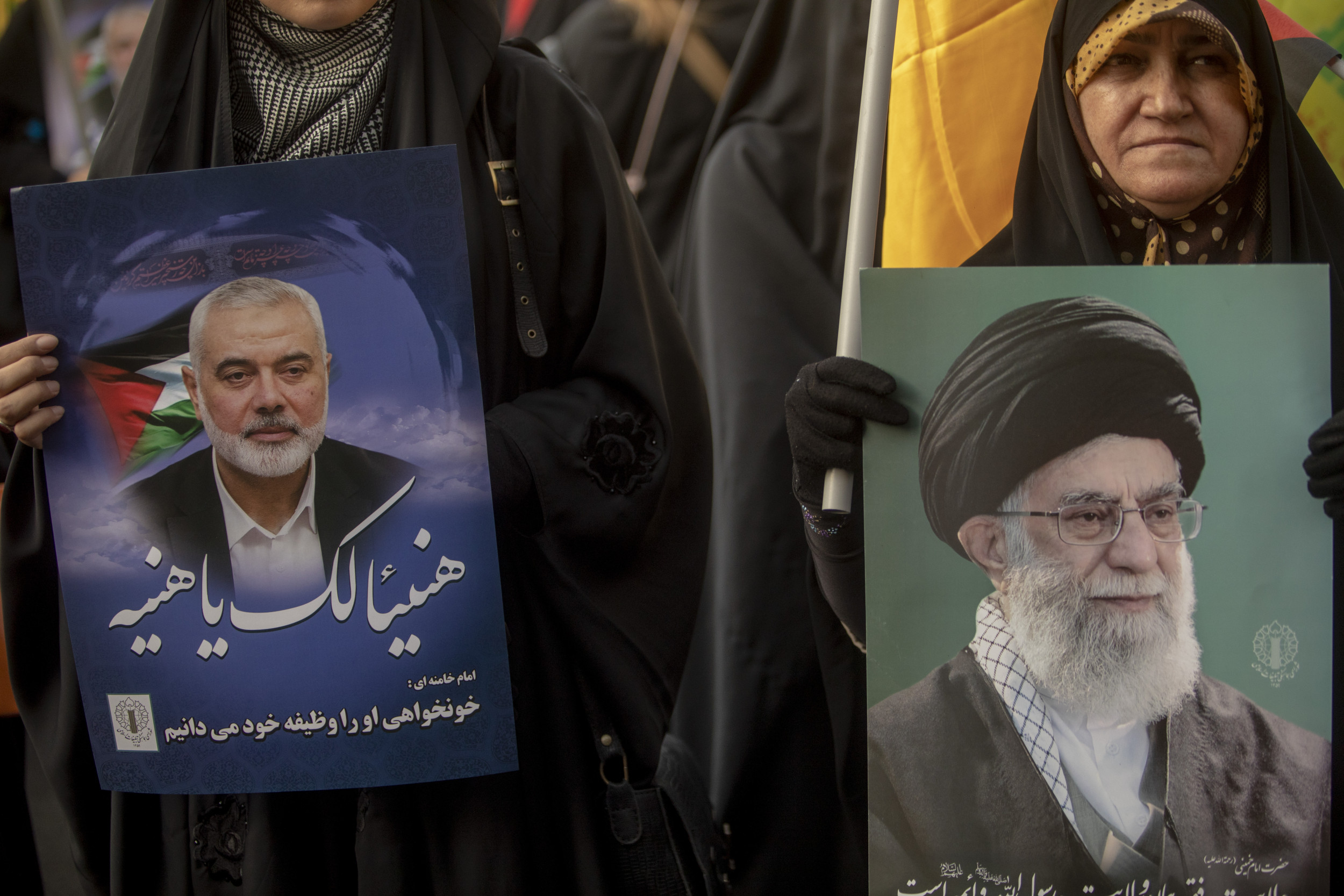The recent assassination of Ismail Haniyeh, the Hamas political chief, in Tehran has ignited fierce calls for retaliation from Iranian leaders, who are pointing fingers at Israel for the killing. As tensions escalate amid an ongoing conflict between Israel and Hamas in Gaza, this incident adds to the already complex geopolitical crisis involving the U.S. and Iran.
Just a day before Haniyeh’s assassination, Israel targeted Fouad Shukr, a high-ranking member of Hezbollah, in Beirut. This operation followed Israeli Prime Minister Benjamin Netanyahu’s vow to retaliate against Hezbollah for a deadly rocket attack in the Golan Heights—a move that has led Hezbollah to promise a response amidst rising hostilities in the region.

The Iranian Triad
Analysts have identified three potential courses of action for Iran in response to Haniyeh’s assassination. The first is a direct military operation akin to the “Operation True Promise,” a substantial attack Iran launched against Israel in April in response to the deaths of its military officials. The second involves an indirect strategy using proxies like Hezbollah and the Houthis to conduct attacks on Israel. The third is a hybrid approach combining direct Iranian attacks with coordinated assaults from allied factions.
Experts suggest that the nature of the operation, particularly whether it occurred from Iranian territory or involved distant technologies, will heavily influence Iran’s response. While both Iran and Israel aim to avoid full-fledged war, analysts agree that strategic posturing is ongoing.

Security Challenges
The assassination illuminates significant gaps in Iran’s security landscape, prompting questions about intelligence and operational effectiveness in high-stakes scenarios. Experts noted that this event could overshadow ongoing nuclear negotiations with the U.S. and shift focus onto broader regional conflicts.
Joe Truzman, a researcher on Middle Eastern security, remarked that perceptions of Iranian vulnerability might provoke a more aggressive response, particularly following ex-Hezbollah leader Shukr’s death. The potential for expanded conflict looms large, especially as Iran and its allies may seek to leverage this moment to pressure the U.S. and Israel into a ceasefire with Hamas.

U.S. Involvement
The ramifications of Haniyeh’s killing could disrupt ongoing ceasefire discussions in Gaza, complicating diplomatic efforts led by President Biden. As Iran weighs its responses, the possibility of involving Hezbollah raises further concerns. The U.S. has already taken steps to defend its interests in the region, indicating a willingness to intervene should Israel face attacks.
Recent actions by the U.S. military against Iranian proxies highlight the complexity of the situation, where any misstep could spiral into a broader conflict involving multiple nations and factions.

Self-Defense Dilemma
Amidst calls for retaliation from Iranian officials, the outlook appears increasingly unstable. Experts caution that while a response is likely, both Iran and its allies must carefully calibrate their actions to avoid escalating into a full-blown war. The need for strategic restraint remains critical, as the balance of power in the region hangs in the balance.
